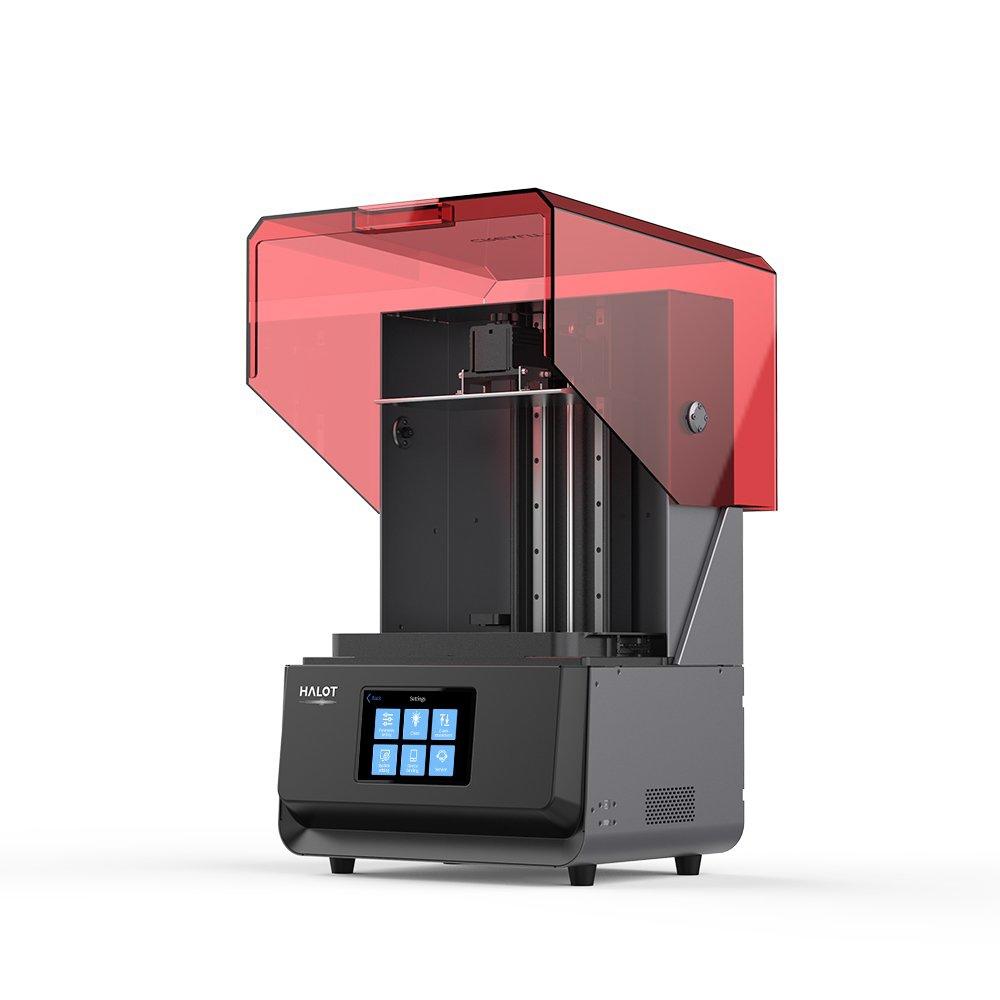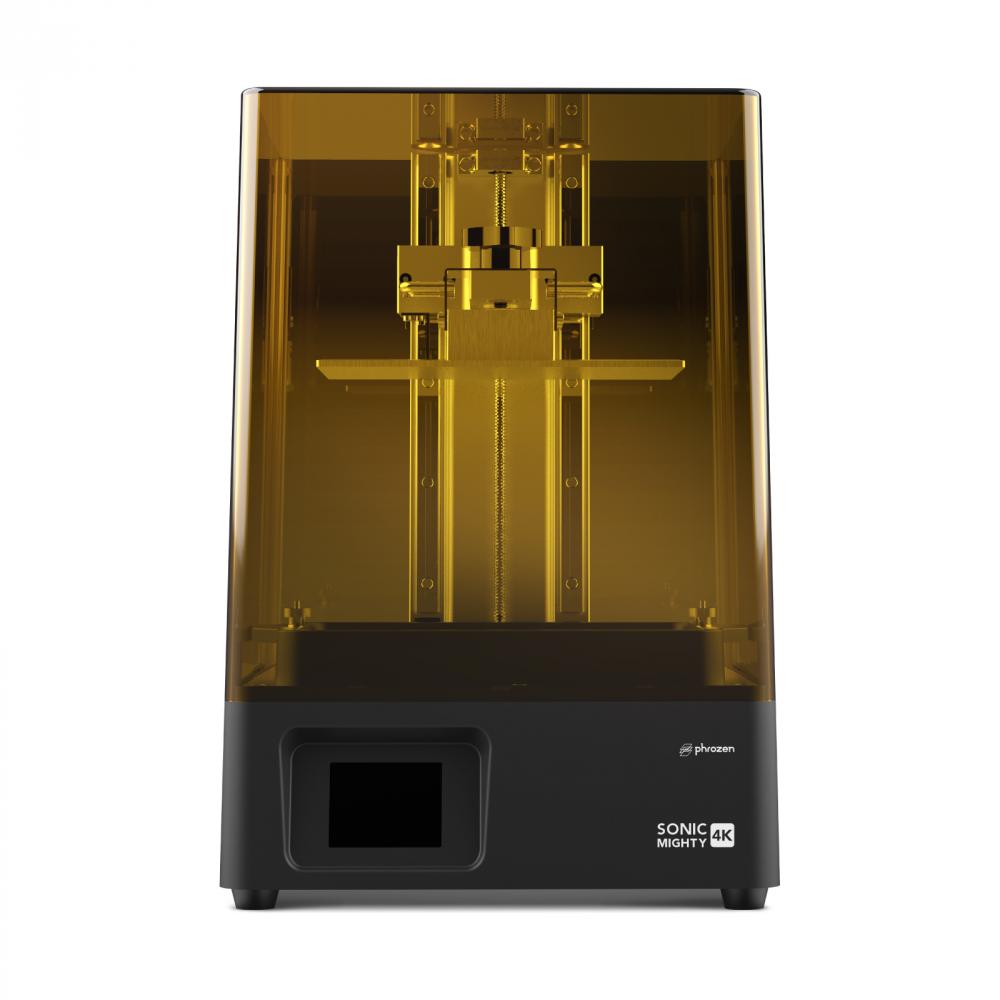Compare Halot Max vs Sonic Might 4k
Comparison between the best 3D printers
Choose the best 3D printer at the best price. The cheapest 3D printers are here.
Buy a 3D printer here with 3D Fila.
 |
 |
|
| Model | Halot Max[BUY Halot Max] |
Sonic Might 4k |
| Printing Material | Resin | Resin |
| Buy Resin for Creality 3D Halot Max | Buy Resin forPhrozen Sonic Might 4k | |
| Estimated price | $3000,00 | $1400,00 |
| Manufacturer | Creality 3D | Phrozen |
| Release Year | 2021 | 2022 |
| Print Volume [mm] | 293x165x300 | 125x220x200 |
| Printer Size [mm] | 480x387x770 | 280x280x440 |
| Weight [kg] | 32,5 | 8 |
| Power Loss Recovery | NO | NO |
| Technology | LCD | LCD |
| Screen Resolution | 4k | 4k |
| Max Print Speed [s/layer] | 1 | 1 |
| Maximum Resolution [mm] | 0,03 | 0,01 |
| Processor | ||
| Display | Display touchscreen 5'' | |
| Power Supply | ||
| Connectivity | SD / USB / Wi-Fi | USB |
| Operating systems | Windows, Mac, Linux | Windows, Mac, Linux |
| Date of registration in the system | 2022-11-04 | 2023-01-08 |
| Release date | 2021 | 2022 |
| Extra features | The Halot Max printer stands out for its large print size (293 x 165 x 300 mm) and uses SLA technology. It has an integral light source for improved accuracy and a strong core with an advanced operating system. Its Z-axis module ensures high precision, supported by efficient slicing software. The machine offers online OTA updates and boasts an adjustable layer thickness between 10 and 200 microns. Its XY-axis resolution is 3840*2160, with 0.05 mm accuracy, and an integral 405nm light source. The printer includes a 5" touchscreen and multiple connectivity options, such as USB, Creality Cloud, and HALOT BOX WiFi. With cutting-edge technology, the Halot Max is ideal for printing small models with uniform precision, thanks to its self-developed lighting system and stable printing mechanism, which includes dual linear guides, ball screws, and an intelligent brake system. | The Phrozen Sonic Mighty 4K printer stands out for its 9.3-inch monochrome LCD, allowing for large prints with precise details. It has a print area of ??200 x 125 x 220 mm, which is larger than competitors with similar 4K screens, although with a slight difference in pixel size. Detailed resolution is achieved thanks to its 3840 x 2400 pixel screen. Additionally, its build tray can move with precision of up to 0.01 mm, ensuring high print quality. It has a solid frame with a cooling fan and a removable cover that contains the resin odor. |
| Support for multiple colors and materials (AMS and CFS) | NO | NO |
Notes * |
||
| Cost-benefit | 5 / 10 | 6 / 10 |
| Hardware | 1 / 10 | 1.2 / 10 |
| Tela | . | . |
| Print volume | 3 / 10 | 3 / 10 |
| Performance | 9 / 10 | 9 / 10 |
| [BUY Halot Max] |
Conclusion |
| In comparing the Creality 3D Halot Max and the Phrozen Sonic Mighty 4K, several key factors emerge that highlight their strengths and potential weaknesses. The Halot Max, while significantly higher in price, offers a larger print volume and advanced features, such as an integral light source for improved accuracy and a robust mechanical structure, making it suitable for high-precision tasks. Its advanced operating system and connectivity options further enhance its usability for serious hobbyists and professionals. However, the investment may not be justified for users with less demanding printing needs, particularly considering its heavier weight and bulkier size. On the other hand, the Sonic Mighty 4K presents a more accessible price point without compromising on print quality. It features a slightly smaller build volume and a lower maximum resolution, but it excels in user experience with a lighter frame and precision movement. The 9.3-inch monochrome LCD gives it an edge in printing larger models with fine details, making it ideal for enthusiasts looking for an efficient and cost-effective solution. In conclusion, if budget is a primary concern, the Phrozen Sonic Mighty 4K is a commendable choice that delivers excellent performance at a lower price. However, for those who require larger print capacities and advanced features, the Halot Max may be worth the higher investment. Ultimately, the decision should be guided by the specific needs and expectations regarding print size, detail, and budget constraints. |

